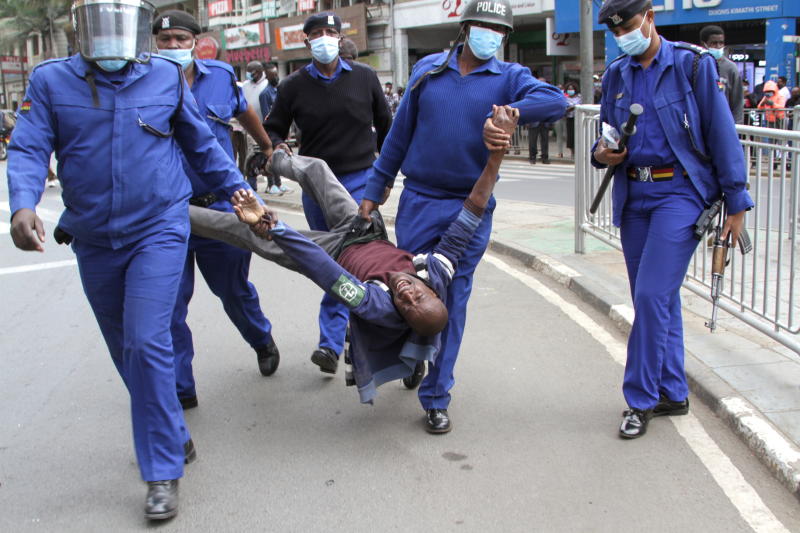×
The Standard e-Paper
Kenya’s Boldest Voice

Anti-riot police arrest an activist along Kimathi Street in Nairobi, during the marking of Saba Saba Day on Wednesday, July 7 2021. [David Njaaga, Standard]
The Inspector-General of Police, Hillary Mutyambai, said some 2,000 officers are suffering from one form of mental illness or another. That’s about 0.02 per cent of our force comprising some 100,000 officers. This is statistically negligible, unless of course you bring all the crazy cops into one station.